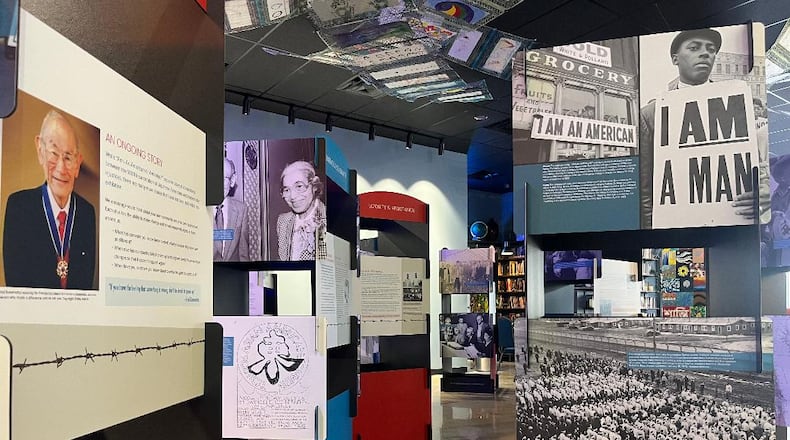Credit: CONTRIBUTED
Credit: CONTRIBUTED
This exhibit is developed in partnership with the Fred T. Korematsu Institute, founded in 2009 to continuing championing Korematsu’s civil rights advocacy by educating and advocating for civil liberties for all communities.
“My father’s story is not a West Coast story or a Japanese American story — this is an American story," said Dr. Karen Korematsu, founder and president of the Fred T. Korematsu Institute and daughter of the late civil rights icon. “The whole crux of this exhibit draws parallels between World War II and what’s been happening in our history until now. We want people to realize we need to appreciate our differences and know our history so we can work more effectively together to solve the problems we have in this country.”
Credit: CONTRIBUTED
Credit: CONTRIBUTED
The exhibit will also be on display during the upcoming North Atlantic Treaty Organization (NATO) Spring Parliamentary Assembly, which will be presented in Dayton May 22-26. Organizers are excited to draw attention to a crucial moment in American history.
“I think it’s quite important for the exhibit to be here during the NATO conference because it asks some good questions,” said Alice Young-Basora, executive director of the International Peace Museum. “It’s going to be something that will be reflective to those who are able to come through the museum to see it. What does it mean to be a citizen of any country? What rights do we have as citizens of any country whether that’s by birthright citizenship or immigration? We’re all looking around asking those questions right now and wondering who is reflecting our voices. This is also an encompassing exhibit. You’re immersed in installations.”
In addition Korematsu will address the themes discussed in the exhibition in a free, public event at the museum at 11 a.m. Saturday, April 26.
“I want people to realize that the Japanese American incarceration was inhumane,” Korematsu said. “It’s not complicated. Children and babies were put into these American concentration camps. I also want people to know my father was never bitter or angry. My parents demonstrated what it means to be an American. Fred Korematsu was one person that made a difference in the face of adversity and so can everyone else.”
HOW TO GO
What: “An I An American or Am I Not?”
Where: International Peace Museum, 10 N. Ludlow. St., Dayton
When: Through June 1. 10 a.m.-5 p.m. Fridays and Saturdays and open for groups by request Tuesdays-Thursdays. Closed Sundays.
Cost: $3-$5. Children 12 and under are free.
More info: peace.museum
Credit: Dennis Cook
Credit: Dennis Cook
About the Author





